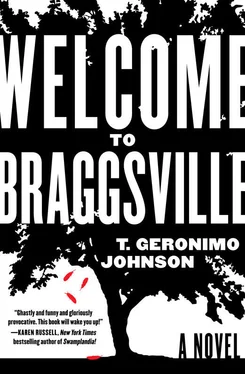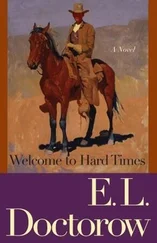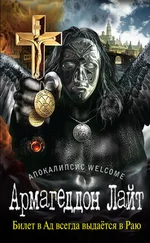She strutted off, shorts nibbling cheeks, perfectly painted legs tucked into huge furry boots, like she was wearing the feet of a baby wooly mammoth.
Daron clambered to his feet, but Charlie extended his arm like a parent coming to a sudden stop. She’ll be back.
Daron muttered his agreement. He believed Charlie. There was never a shortage of girls volunteering to be in Charlie’s group, and he wasn’t even on the football team, he only looked like it.
She was here until the shoplifting sex part. You can recover as long as you don’t apologize or follow her now. Saying sorry would be giving up the advantage.
Daron considered this. If that was the case, he should draft an official apology. Forget La-La Loosey, as they called her. He had forgotten about Kaya, his freshman obsession, it was now Candice who inflamed him. The way she laughed, like she had a big appetite.
Daron ignored the fun being had at Louis’s table. Louis probably could have gotten away with a shoplifting sex comment.
The professor chose a replacement from the five coeds who volunteered and soon they were again picking at their appetizer, but they would not have room for dessert because for their entrée someone mentioned reenactments. A few people were surprised to hear that a professor at Brown was holding reenactments of famous civil rights demonstrations. The immediate consensus: It was a joke. It had to be ironic.
They have a reenactment every year in my hometown, announced Daron.
That can’t be serious, piped La-La from her new table. Vous n’êtes pas cereal.
Pull, Daron mumbled, borrowing Louis’s skeet-inspired euphemism for shooting the bird. They’re real cereal.
A reenactment? ¿Por qué? ¿Por qué? Candice groaned as if someone had run a fat baby up a flagpole. ¿Por qué? ¿Por qué? was her way of saying: Why?… No! That’s not why. Have a seat. I’ll tell you the real reason, whether you want to know or not. Worse yet, her conversations had astral bodies, as Louis joked. They’d be hearing about this for weeks (as they had been about Ishi).
And she was not the only one. The table was shocked. The entire class in fact. They’d heard tell of Civil War reenactments, but they were still occurring? The War Between the States was another time and another country. As was the South. Are barbers still surgeons? Is there still sharecropping? What about indoor plumbing? Like an old Looney Tunes skit, Tex Avery tag ensued. Charlie gawked at Louis, who gawped at Candice, who generously suggested it as a capstone project to the professor, who Googled the event and announced that it coincided with spring break, Serendipity has spoken.
Candice’s eyes were still pinwheeling as they had when she’d learned about Ishi, last of the Yahi. In 1911, that wild Indian wandered into Oroville, CA, where he was caught stealing meat. ¿Por qué? Because, according to Candice, Ishi was driven to desperation by California’s Gold Rush — financed Indian removal campaign. Seeing as how the locals didn’t take neatly to theft, the sheriff took Ishi into custody for Ishi’s own protection. ¿Por qué? Because, according to Candice, Ishi’s scalp alone was worth $5 U.S. After reading about Ishi in the paper, a kind UC anthropologist named Alfred Kroeber became Ishi’s benefactor, and installed Ishi in a comfortable apartment in the Museum of Anthropology at UC Berkeley. ¿ Por qué? Because, according to Candice, Ishi wasn’t considered fully human. This was institutionalization, no different from being imprisoned or placed in a zoo. And, according to Candice, a Civil War reenactment was little better. She insisted they spend the break in Georgia recording the reenactment. Because!
About this idea Daron felt as he had during that first face-off with sushi. No matter what Candice said, mixing boiled eggs into chicken salad was not the same as dropping a dollop of roe on raw tuna! Not at all! Not when eating, not the next morning. And wasabi? That word sounded like a scourge for the soul as well as a torment for the tongue. But, because they were enthusiastic, and Candice suddenly so interested in him, and the entire class chanting, Go for it; because at that moment seventeen students were hunger striking in response to the reduction in funding for Ethnic Studies, Gender and Women’s Studies, and African American Studies; because it was Berzerkeley, dammit to Hades, Daron couldn’t say no. He didn’t say yes, but couldn’t yet say no. Never mind that at home, his friends would have half considered — briefly — a hunger strike only if it meant getting classes canceled, not added. Never mind that he had never actually ventured onto Old Man Donner’s grounds while the reenactment was being staged. Never mind that the notion of recording morphed into participation.
But mind he did when Candice suggested a performative intervention, or, in Louis’s words, a staged lynching. Daron protested that lynching never happened in his town.
That’s even better! The prof clapped his hands softly, his right eye red-rimmed from the monocle. You can force States’ Rights to take a look in the mirror and they will not like what they see. Will this be safe? There won’t be any danger, will there?
The class looked at Daron expectantly, all twenty-nine eyes.
He snorted. What did they think Georgia was like? Of course not! There’s no danger at all. It’s safe. The reenactment is open for public viewing. It was decided then, in the wink of a cat’s eye. Next month, spring break, would not see him in Tijuana or Los Cabos or Guadalajara enjoying tacos, Tecate, and tequila with other Berkeley students, though perhaps there was still a chance of dissuading them. During the walk from Wheeler Hall to Foothill, he wasn’t sure he wanted to dissuade them, not with Candice at his arm, Please-please-pretty-pleasing him to tell her all about Braggsville, which there was ample time to do because it was uphill all the way. He savored every step, every time she touched his elbow, every time she exclaimed with disbelief, every time she waved her hands like flippers, which she did when excited.
At first Candice had not seemed different from the girls he went to high school with, didn’t look any different, but her enthusiasm distinguished her, and once committed, her zeal was of a predacious intensity. She would be, in Quint’s words, Hard to wife.
If I were Southern, Candice whispered, I’d be real angry about that kind of history being celebrated. She repeated herself, the words again spoken softly, almost hummed.
Daron heard her as surely as if she had screamed. (What had Nana always said? The good Lord speaks with fire on tongue but man heeds man’s counsel only when spoken softly, almost sung.)
I’d plan something big, really big, she added, just as quiet as the first time.
Their plan: Three of them would dress as slaves, one wearing a harness under his clothes. One would act as the master, cracking a whip and issuing random, absurd orders. They assumed there would be enough rocks or branches nearby to form a pile for the slaves to carry back and forth. While this was happening, they would run a hidden camera and record the reenactors’ reactions and ask them a few questions about the war, local history, and the reenactments. Then the slave wearing the hidden harness would get uppity, maybe make some untoward comment about the lady of the plantation or try to run off or just complain that there wasn’t enough salt in the food. Then the party would get started. That slave would be hoisted from a low limb as if lynched. They debated whether or not to hang Charlie. Louis argued that using the Veil of Ignorance as a guide meant lynching a white person, ideally a white female, pretty, blond, because they were the most treasured people in the whole, wide world, if not the entire known and unknown universe, in this life and the next, in this dimension — Charlie cut him off, worried that might provoke gunfire, that most people were ignorant of the Veil of Ignorance, so it wouldn’t work. Candice had said (parroted Charlie, really), It is what it is. They should call a spade a spade . At that the debate came to a halt.
Читать дальше
Конец ознакомительного отрывка
Купить книгу












